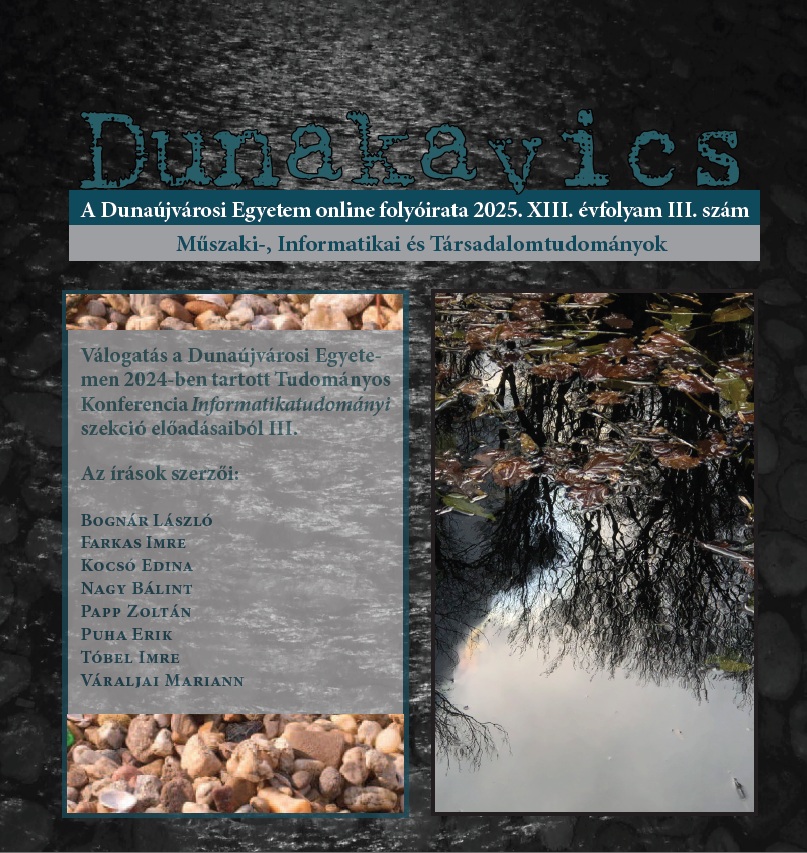A tanulási folyamat során preferált információforrások vizsgálata a sikeresség érdekében
Absztrakt
A tanulási folyamat változatos aspektusból végzett vizsgálata során mind pontosabb képet kaphatunk az adott kor hallgatói igényeiről és tanulási szokásairól, hogy ezáltal a mindenkori tanulási környezetet a mindenkori igényekhez alakítsuk. A technológiai fejlődés impulzívan kihat a társadalom minden rétegére és minden színterére, így az oktatás területére is egyre erőteljesebben gyűrűzik be. Az oktatási folyamatban a technológiai támogatottság egyre erőteljesebb integrálási igénye egyben a különféle tanulási környezetek kialakításának lehetőségét is jelentik. A modern tanulási környezetek az egyénre szabható jellegük miatt képesek megteremteni az egyén számára azt a kedvező körülményt, amely őt támogatja a sikerességben.
A tanulási környezetek témakörben végzett kutatásunk során több szempontból is igyekszünk körbejárni az oktatás–technológia–szemléletmódváltás
összefüggéseket, egymásra hatásokat. Jelenlegi szakaszban arra kerestük a választ, hogy a változó tanulási környezetben a mindenkori hallgatói sokaság milyen jellegű információforrást preferál az oktatási folyamatban, hogy a saját sikerességük érdekében minél kedvezőbb feltételeket tudjanak teremteni a tanulás során.
Hivatkozások
Anderson, T.-Elloumi, F. (2004): Theory and practice of online learning. Athabasca: Athabasca University.
Means, B.-Toyama, Y.-Murphy, R.-Baki, M. (2013): "The effecitveness of online and blended learning: A meta-analysis of the empirical Literature," Columbia: Teachers College, Columbia University. https://doi.org/10.1177/016146811311500307
Fazekas G.-Kocsis G.-Balla T. (2014): "Elektronikus oktatási környezet," Debrecen: Debreceni Egyetem.
FAO of the United Nations (2011): "E-learning methodologies - A guide for designing and develpoing e-learning courses," Róma: FAO.
Fisher, J.-Whale, S. (2014): "Flexibility and technology-enhanced learning and teaching: The rhetoric and reality," New England: University of New England. https://doi.org/10.14742/apubs.2014.1252
Bhatia, R. (2011): "Features and effectiveness of e-learning tools," Global Journal of Business Management and Information Technology, 1,. (1.), pp. 1-7.
Tóth-Mózer S.-Lévai D. (2011): "Az oktatási és nevelési folyamat kiterjesztése online közösségi felületekre," Hungarian Educational Research Journal, 1., kötet1, (1.). https://doi.org/10.5911/HERJ2011.01.07
Ősz R.: "Mobil generáció az oktatásban," Kutatási füzetek - A szakmai tanárképzés szolgálatában, 1., Tisztelgő kötet, pp. 131-139.
Vermeulen, E. P. M. (2017): "How "Teaching" has Changed in a Digital Age," 15., 10. 2017. [Online]. Available: https://hackernoon.com/what-millennials-demand-from-education-a291011a71c5. [Hozzáférés dátuma: 02. 06. 2019.]
Schwieger, D.-Ladwig, C. (2018): "Reaching and Retaining the next generation: adapting to the expectation s of Gen Z in the classroom," Information - Systems Education Journal, 16., (3.), pp. 45-54, 2018.
Loveland, E. (2017): "Instant generation," Journal of College Admission, Alexandria: VA.
Váraljai M. (2017): A információszerzési szokások vizsgálata a változó tanulási környezetben. Pécs.




